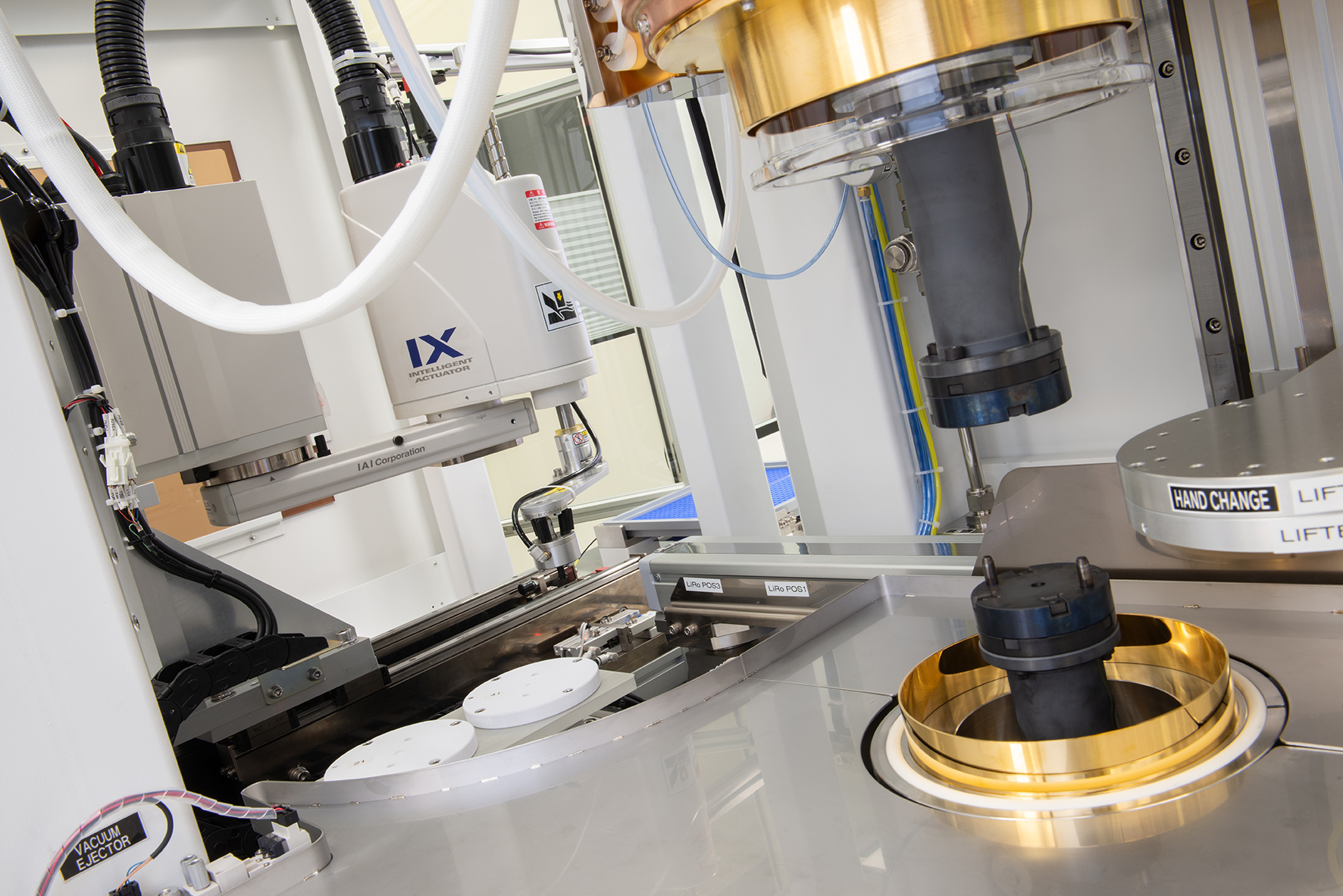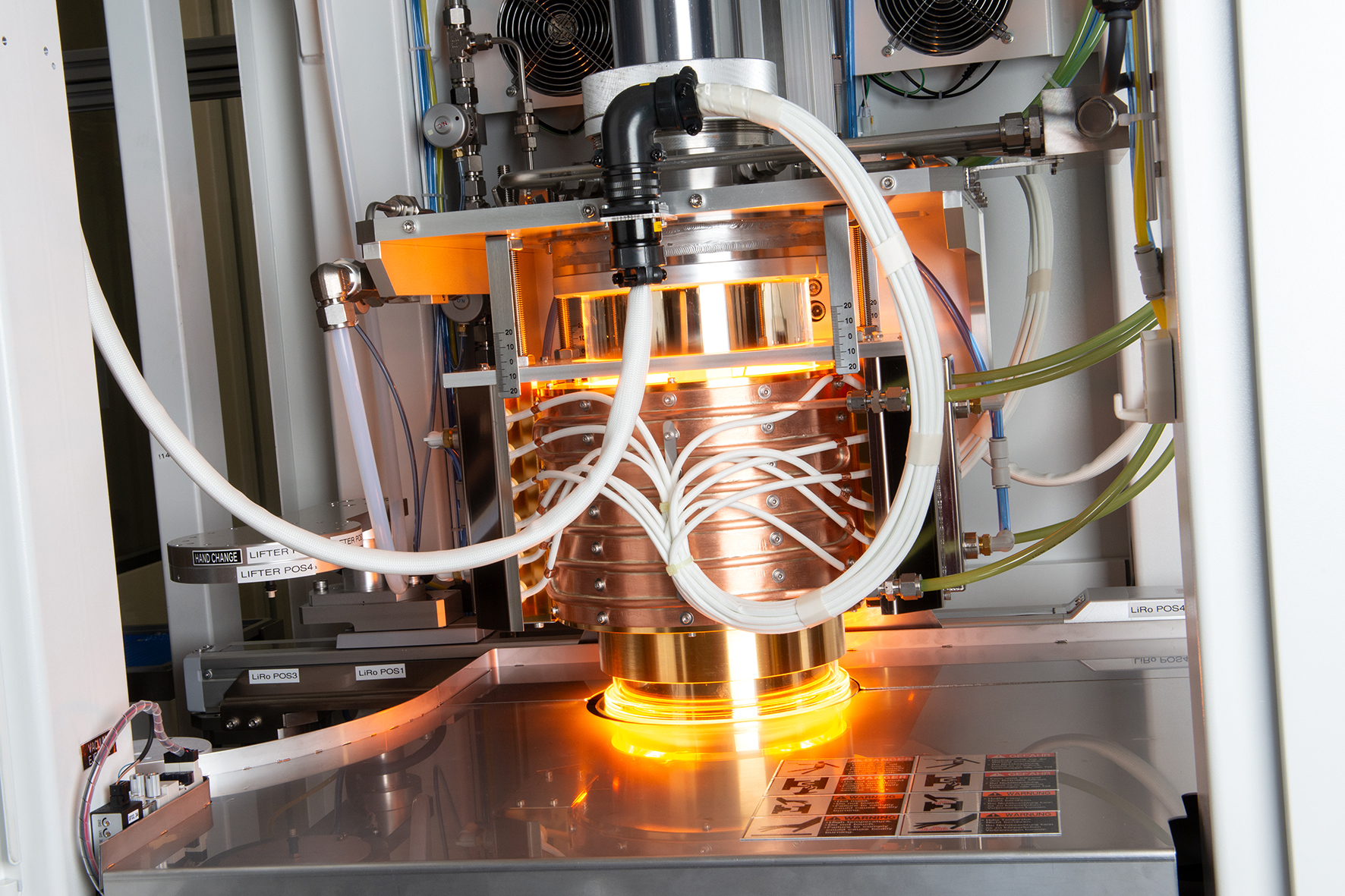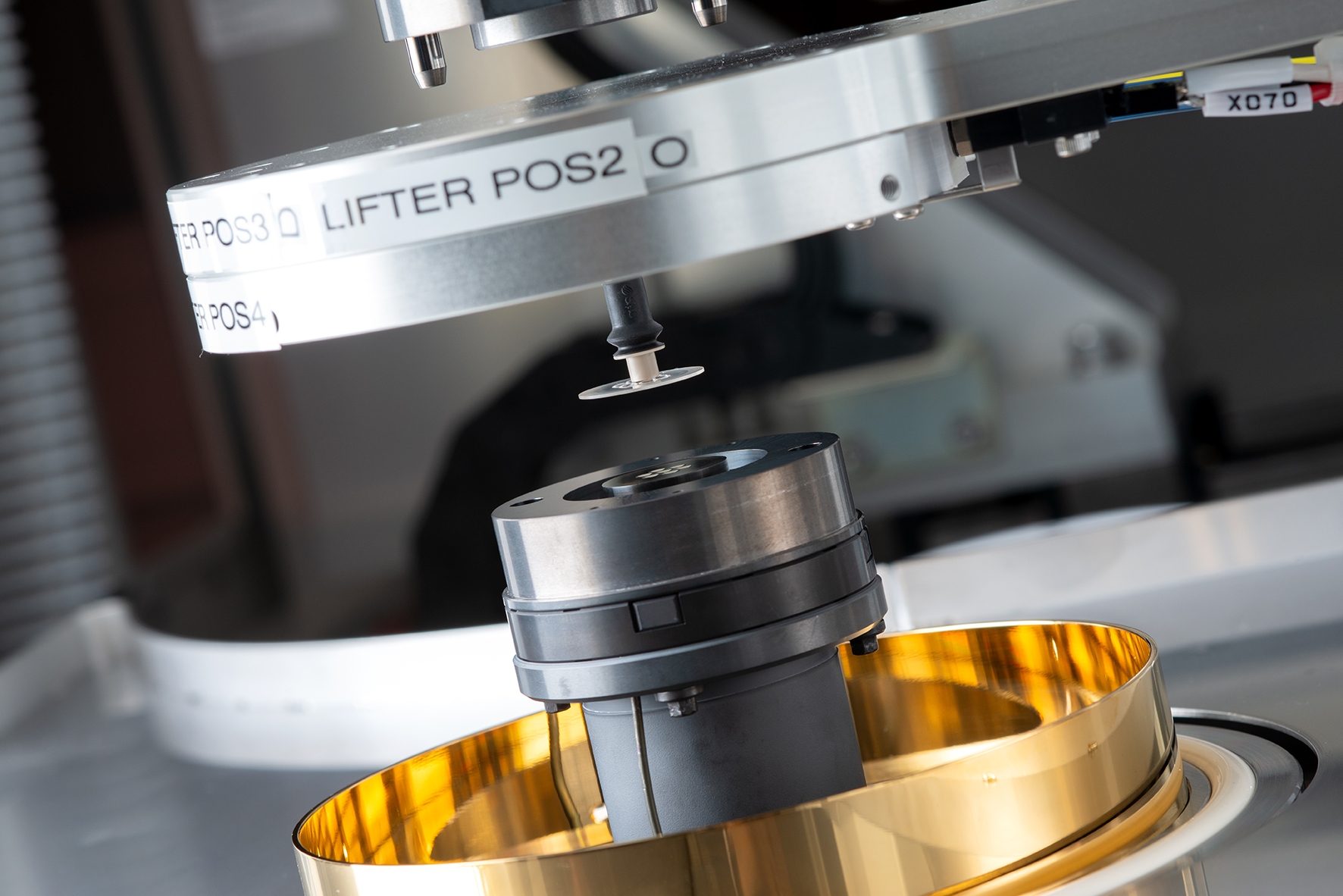Fraunhofer IPT conducts research into automated series production of optics with new glass press
The Fraunhofer Institute for Production Technology IPT in Aachen has expanded its machinery with a new system for the automated molding of high-precision optical glass components. As a result, the institute is now the only research institution in Europe able to offer research on efficient small-series production of small glass optics using a wafer-level approach. Large individual optics with a diameter of up to 150 millimeters can also be manufactured with the facility.



The production of complex glass optics, such as those found in cameras, sensors or medical devices, often takes several weeks. In the "Optics48" research project, the Fraunhofer IPT is currently working with project partners to develop a new technology chain that significantly speeds up the manufacture of such optics. Using digital manufacturing technologies, automation and modern machine technology, even highly complex optics in large quantities are to be produced in just a few days in the future.
Smooth transition to mass production
With the new GMP-415VA-PX glass molding system from Japanese manufacturer Shibaura Machine Company (formerly Toshiba Machine Company), the Fraunhofer IPT is now the only research institution in Europe with the capability to develop and optimize manufacturing processes for complex wafer-level optics or multi-cavity designs.
“Previously, we had to manually remove the optics from the system after molding and add new ones. This limited us to prototype production in small quantities," says Marcel Friedrichs, who leads the research work on glass molding at the Fraunhofer IPT. The new system has an integrated autoloader that now allows largely automated production without manual intervention. As a result, batches of up to 100 optics per hour can now be formed with high precision. "This step is enormously important for us and our partners in industry, because optimized small-batch processes enable a smooth transition to mass production," says Marcel Friedrichs.
Large in diameter: molded glass optics up to 150 millimeters
With the new system, the Aachen team can explore more than just mass production. Glass optics with a diameter of up to 150 millimeters can be produced in the particularly large process chamber. Previously, the Aachen researchers could only produce optics with a maximum diameter of 110 millimeters. Both optical glasses for the visible range and infrared glasses can be processed.
Integration of sensors for process monitoring
With the new addition to its machine park, the Fraunhofer IPT completes its already comprehensive process chain for glass molding, which ranges from model-based process design and tool manufacturing - including specially developed tool coatings – to the isothermal and non-isothermal molding and the quality control.
The Aachen optics team is now planning to install various sensors in the new system for process monitoring and automated coating life tests. This will enable the team to perform even more precise analyses and evaluations for automated small-series production in the future, further improving the level of automation in small-series production and the quality of the optics. "The facility, and with it the increased use of advanced simulation techniques, enables us to open up many new fields of application, such as optoelectronics and quantum technologies. We are already holding initial talks with companies," says Marcel Friedrichs.